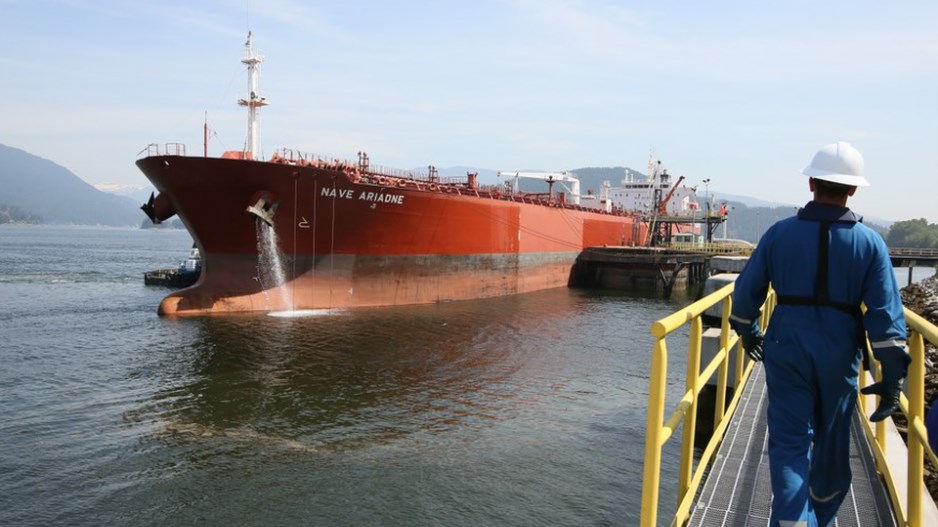The Chamber of Shipping of BC is raising concerns over new measures recommended by both the National Energy Board and State of Washington that are aimed at reducing the impacts of oil tanker traffic on killer whales, but which could have wider impacts on commercial shipping in general.
The NEB this morning announced that, after reconsidering marine impacts from increased oil tanker traffic, it is recommending the federal government once again approve the expansion of the Trans Mountain pipeline.
While the chamber is pleased that the NEB is recommending the expansion be approved, it says some of the recommendations would have impacts on shipping in general.
So would new measures being considered by Washington State. And ironically, the Washington State measures would actually increase noise in the Salish Sea, since it recommends that all vessels carrying oil, including smaller barges, be required to have escort tugs.
The NEB acknowledges that killer whales are already affected by marine traffic congestion in the Salish Sea, and that adding additional oil tankers would result in “significant adverse environmental effects” on the Southern Resident Killer Whale.
However, the NEB suggests mitigation measures, including “offsets.” Those offsets would mean that other vessels, from container ships to whale watchers, might have to shoulder some of the mitigation burden. The NEB is recommending vessel slowdowns, for instance, in certain areas.
“Obviously that’s a very complex issue and could affect other commodity trades,” said Chamber of Shipping president Robert Lewis-Manning.
The route taken by oil tankers and other large vessels, like container ships and bulk carriers, runs along the outside of Vancouver Island. Tankers and other large ships enter the Strait of Juan de Fuca, pass through Haro Strait, Boundary Pass and into the Strait of Georgia to English Bay.
Oil tankers bringing oil to or from ports in both Washington States and B.C. pass through both Canadian and American waters while in the Juan de Fuca Strait, so Canadian laws can have an impact on American shipping interests, and vice versa.
Oil tankers must be guided in and out with escort tugs. But one recommendation in the NEB reconsideration report suggest that other ships should have escort tugs as well, not just oil tankers.
“Mandatory enhanced tug escort should also be considered for other vessels as appropriate,” recommendation No. 8 states.
“Our assumption is they mean all vessels,” Lewis-Manning said. “Of course, having more tug escorts would mean more noise in the exact area where you’re trying to take noise away.”
Noise from ships is one of the big concerns when it comes to whales, since they use echolocation to hunt and generally navigate.
A new bill proposed in Washington State likewise would add more tugs, and more noise, to the Salish Sea.
Bill HB 1578 specifically targets the movement of Canadian oil under the banner of protecting the Southern Resident Killer Whale.
The bill would require all vessels transporting oil, not just the larger oil tankers, to have escort tugs when transiting American and Canadian waters.
“In Washington State, it requires every vessel between 5,000 tonnes and 40,000 tonnes to have an escort tug, which is going to put a whole bunch of more noise into the waters that we’re trying to noise out of,” Lewis-Manning said.
Oil tankers currently account for a small percentage of the total vessel traffic in local waters. The Trans Mountain pipeline expansion would increase tanker traffic from the current three or four per month to 34 per month. At 34 per month, that would represent about 14% of total large vessel traffic. However, other sectors are increasing as well – from cruise ships to grain carriers and ferries.
“The noise that a project tanker adds to the whole Salish Sea is very small,” Lewis-Manning said.




